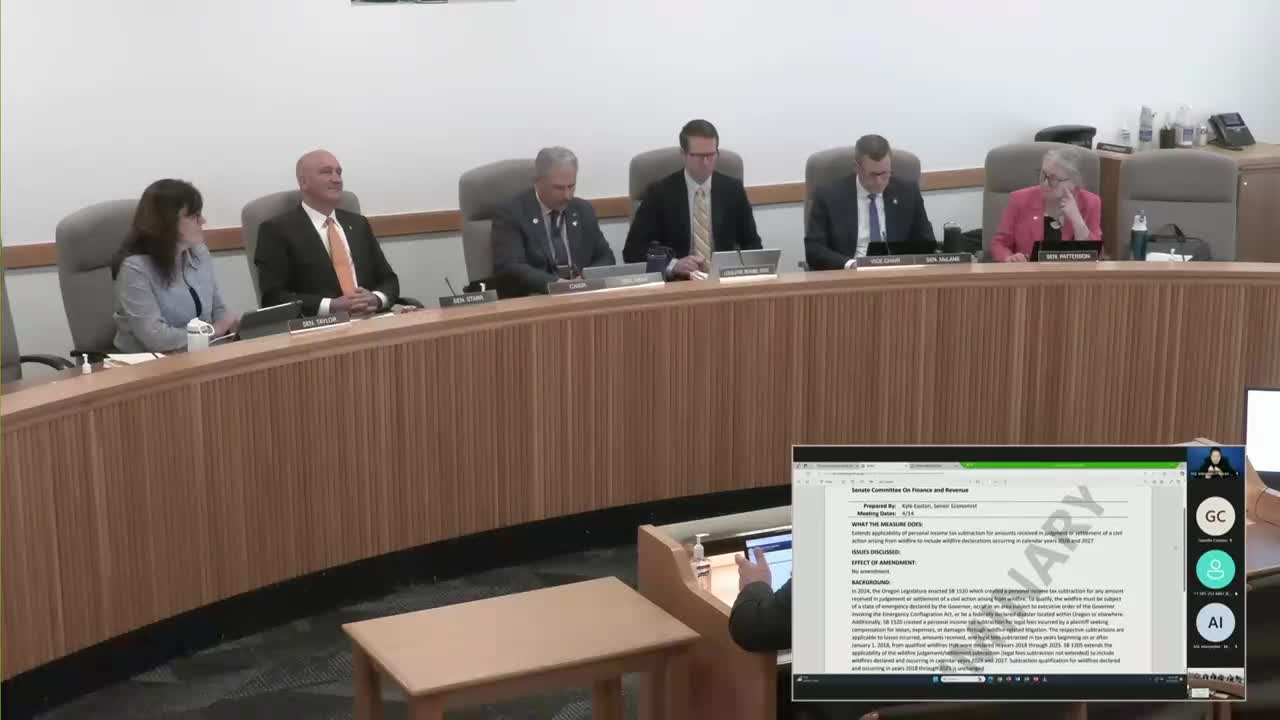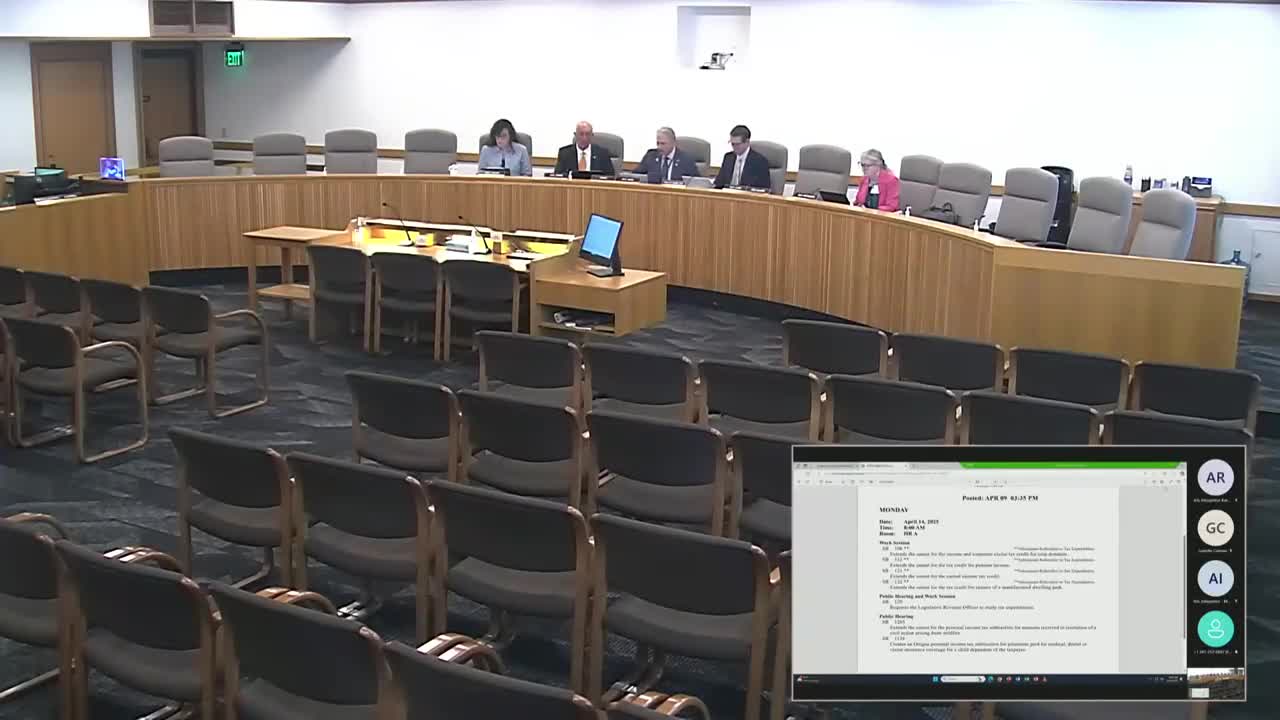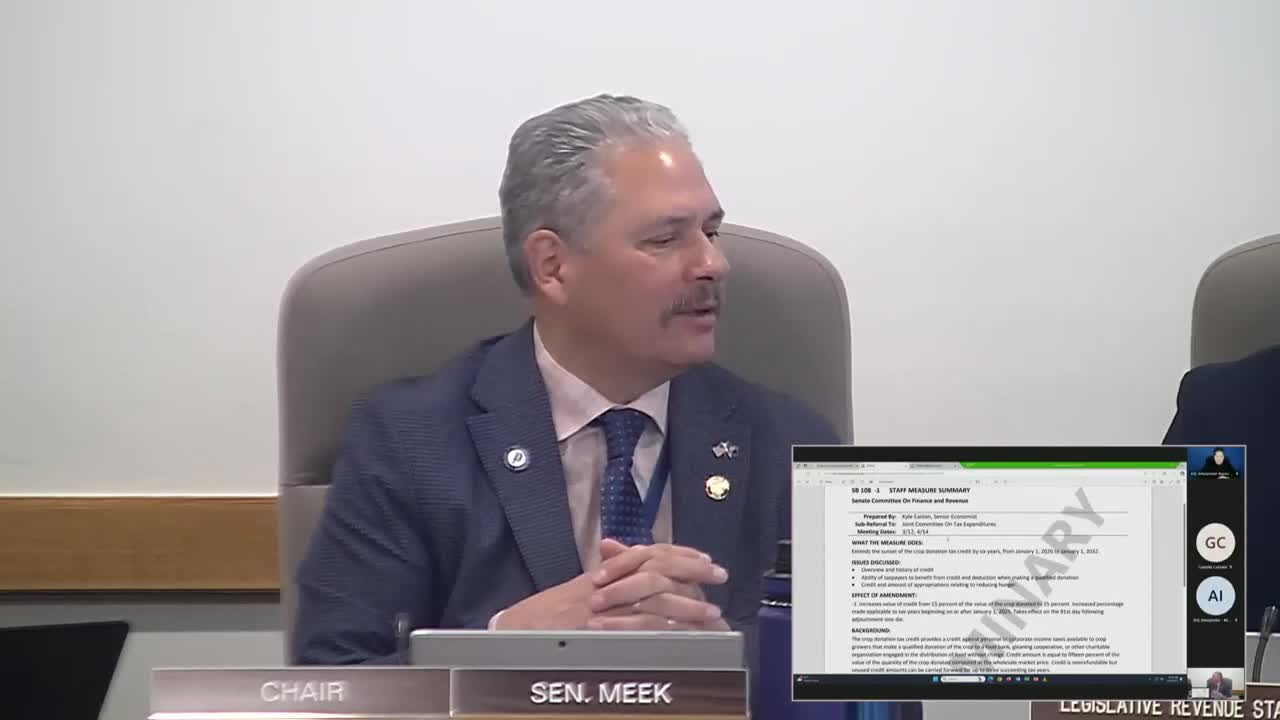Article not found
This article is no longer available. But don't worry—we've gathered other articles that discuss the same topic.

Committee hears bill to allow up to $10,000 subtraction for dependent health premiums; advocates cite middle-income squeeze

Senate committee hears bill to extend income-tax subtraction for wildfire settlements through 2027

